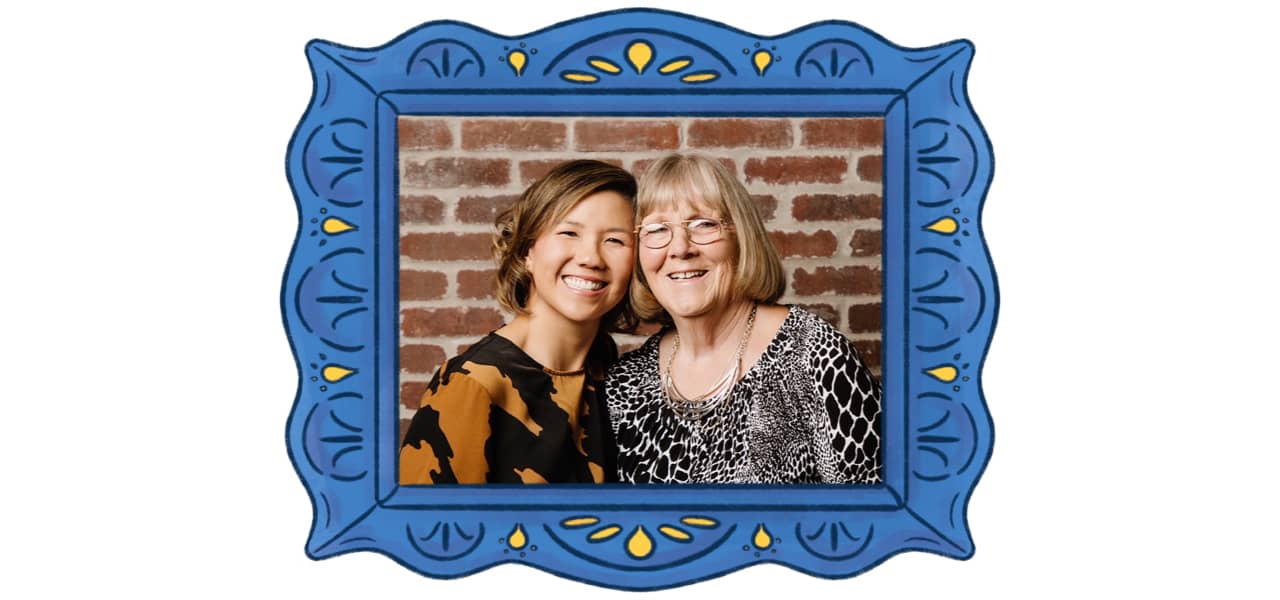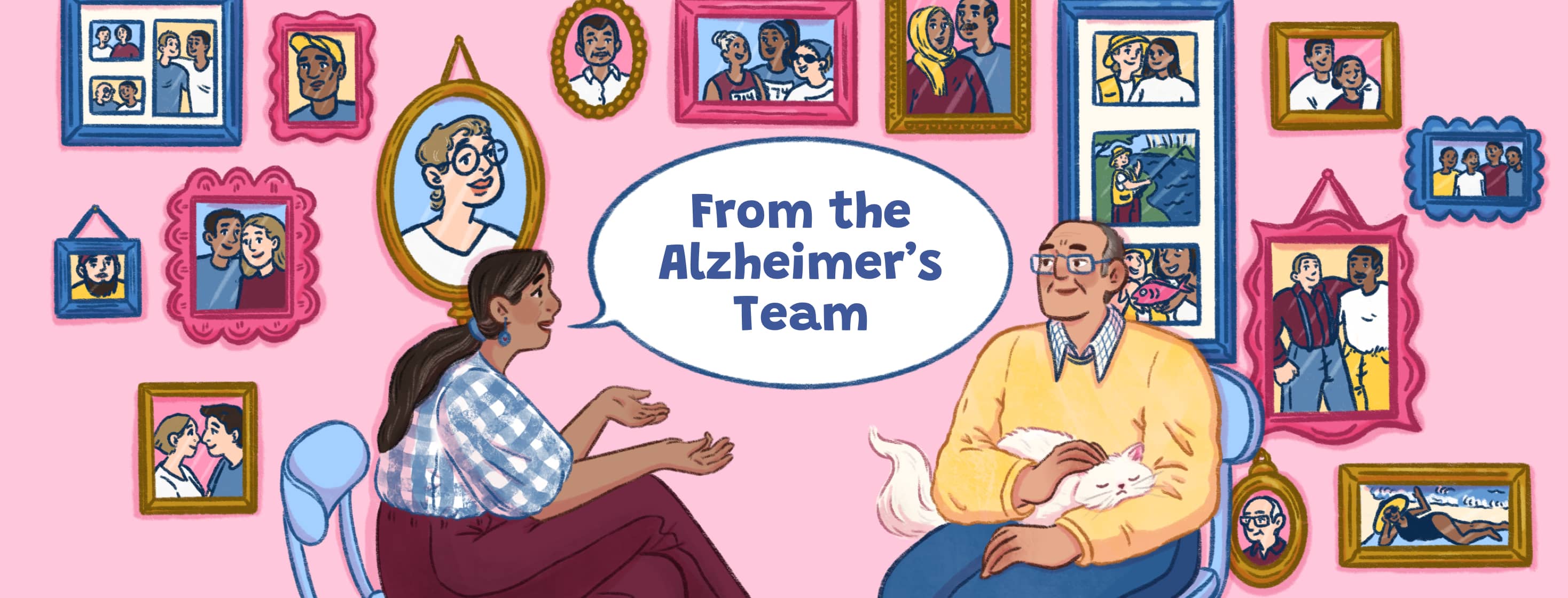Mom and Me: An Alzheimer’s Q & A
I interviewed my Mom for Alzheimer's Awareness Month, and I wasn't sure how it would go. She really doesn't like to talk about her diagnosis. But she was up for it, and I was pleasantly surprised.
Short, sweet, and real
Because of dementia, Mom answers mostly in very short sentences, which is a big contrast to her past self, that could talk to me for hours and hours. When I asked her how her life has changed since being diagnosed with Alzheimer's, she laughed and said, "It's the pits!" There might have been a rhyming word substitute unfit for print.
We both laughed. She really means that - she hates having dementia, but she also has a way of taking life in stride and laughing about it in a way that says, "What can you do about it?"
I love that she talked about staying active. She walks her dog many times every day, rain or shine, and goes to water aerobics classes at the gym for over 10 hours a week. She's never been a typical athlete, but those activities motivate her to get out of bed in the morning.

The other side of the coin
I also answered the questions from a caregiver's perspective. I have so much to say because this has been such a wild disruption to my life but also one of the most meaningful things I will probably ever do.
Q & A with my Mom, who lives with dementia
How do you keep communication open with your family?
I call and talk to them.
How has your life changed since being diagnosed with Alzheimer's disease?
I can't live alone.
Do you feel well supported by your doctors and family?
Yes. 100 percent! They [family] call and check in on me.
What do you want other people diagnosed with Alzheimer's to know?
Try to stay as active as you can.
What should caregivers know?
Be patient with us.
Q and A with me, a dementia caregiver daughter
How do you keep communication open with your care partner?
Mom lives with my family, so we get to talk every day. But I also try to check in with her and see what's on her mind. I walk into her room and ask her, "How are you doing? Do you need anything?"
She doesn't talk much about her emotions, so usually, it's just errands she needs to run or things on her to-do list. But I've learned those things are important to her and make her feel cared for.
Coping with life changes and garnering support
How has your life changed since your Mom's diagnosis of Alzheimer's disease?
My entire life has changed. In addition to taking care of my three young children, we moved my Mom out of her childhood home into our house to take care of her full-time.
I have had to adjust to being part of the "sandwich generation" who simultaneously takes care of parents and children. I am fully in charge of Mom's finances, caregiving, and transportation as she does not drive anymore.
Do you feel well supported by her doctors and family?
It took a while to find a healthcare team that understood Mom's needs. We finally have a great team of excellent providers who understand Alzheimer's disease and are respectful and dedicated to my Mom's care.
There have been ups and downs with family (and even some serious drama - can any other caregivers relate?). Still, there are core members who have been extremely supportive and helpful along the whole journey.
What everyone should be aware of
What do you want people diagnosed with Alzheimer's to know?
This is not the end of your life. Things will change, but your life can still be full and rich. Join a support group, so you're not alone. Do some preparations for your own peace of mind and to make it easier for your care partners. Be vocal about what you want and don't want for your care, but try to be flexible if alterations have to be made to fit with your care partners' lives.
What should other caregivers know?
Don't be afraid of the "A" word. Join a support group, so you're not alone. Talk to your people about how you can help them prepare. Don't wait to make legal decisions, or they might be invalid. Surround yourself with people who build you and your loved one up and support you. Take care of yourself and your own family too. Ask for help, and you'll be surprised at who steps up alongside you.
Closing thoughts
I am passionate about support groups and therapy. Not going to sugarcoat it: This is a really hard journey, and you need to take care of yourself.
You won't do any good to anyone if you can't get out of bed in the morning or your own health is thrown to the wayside. Make sure you are sleeping, going to doctor appointments, and seeking therapy if you need it. This is a marathon, not a sprint, and we'll all get through it with some help.
Hang in there, Caregiver! I'm rooting for you.
Read more from Kelsey about her experience as a caregiver.

Join the conversation